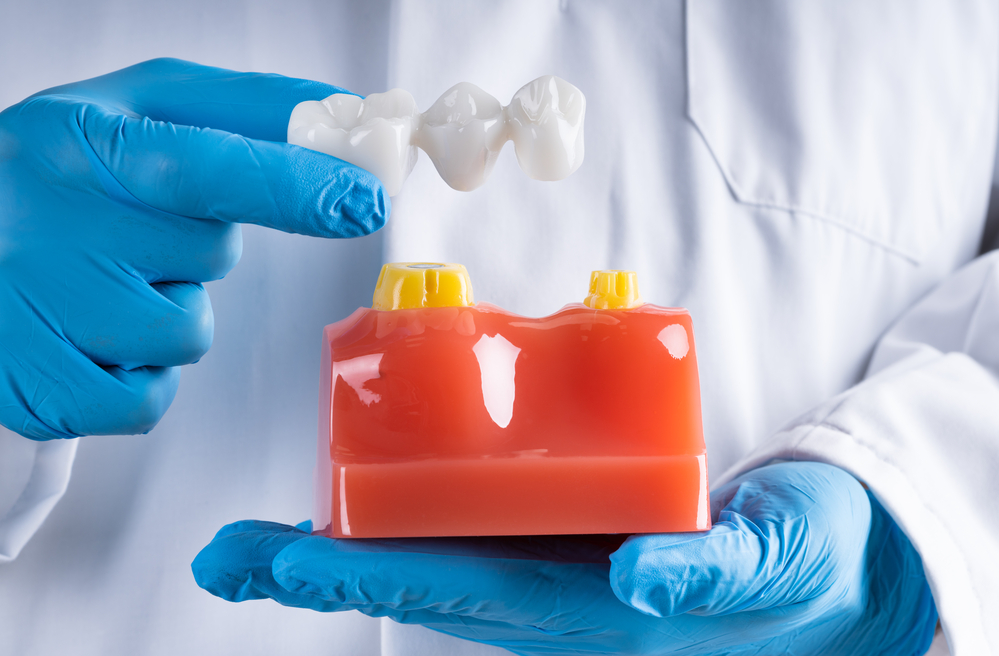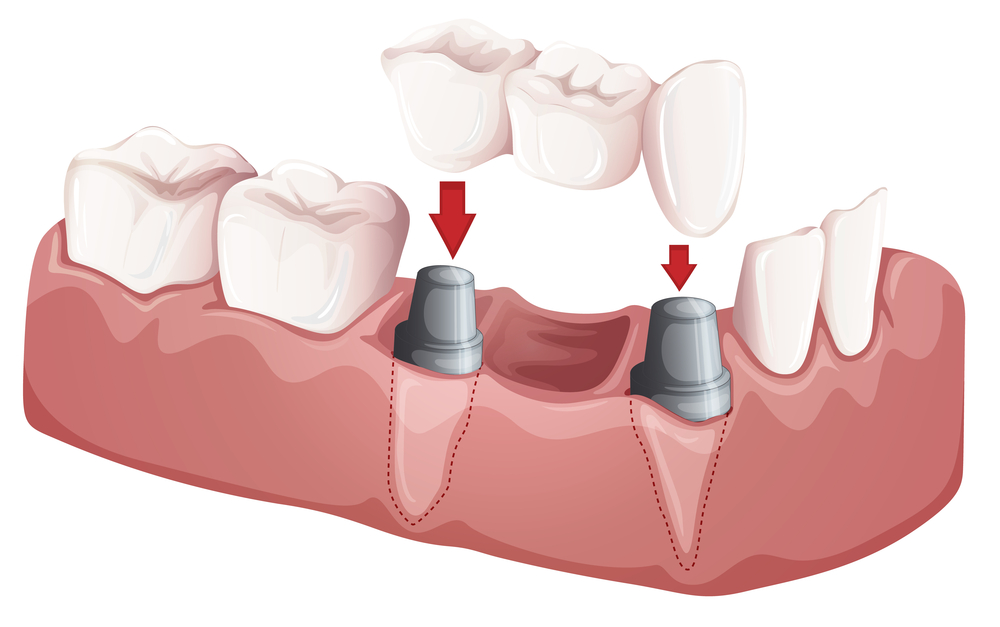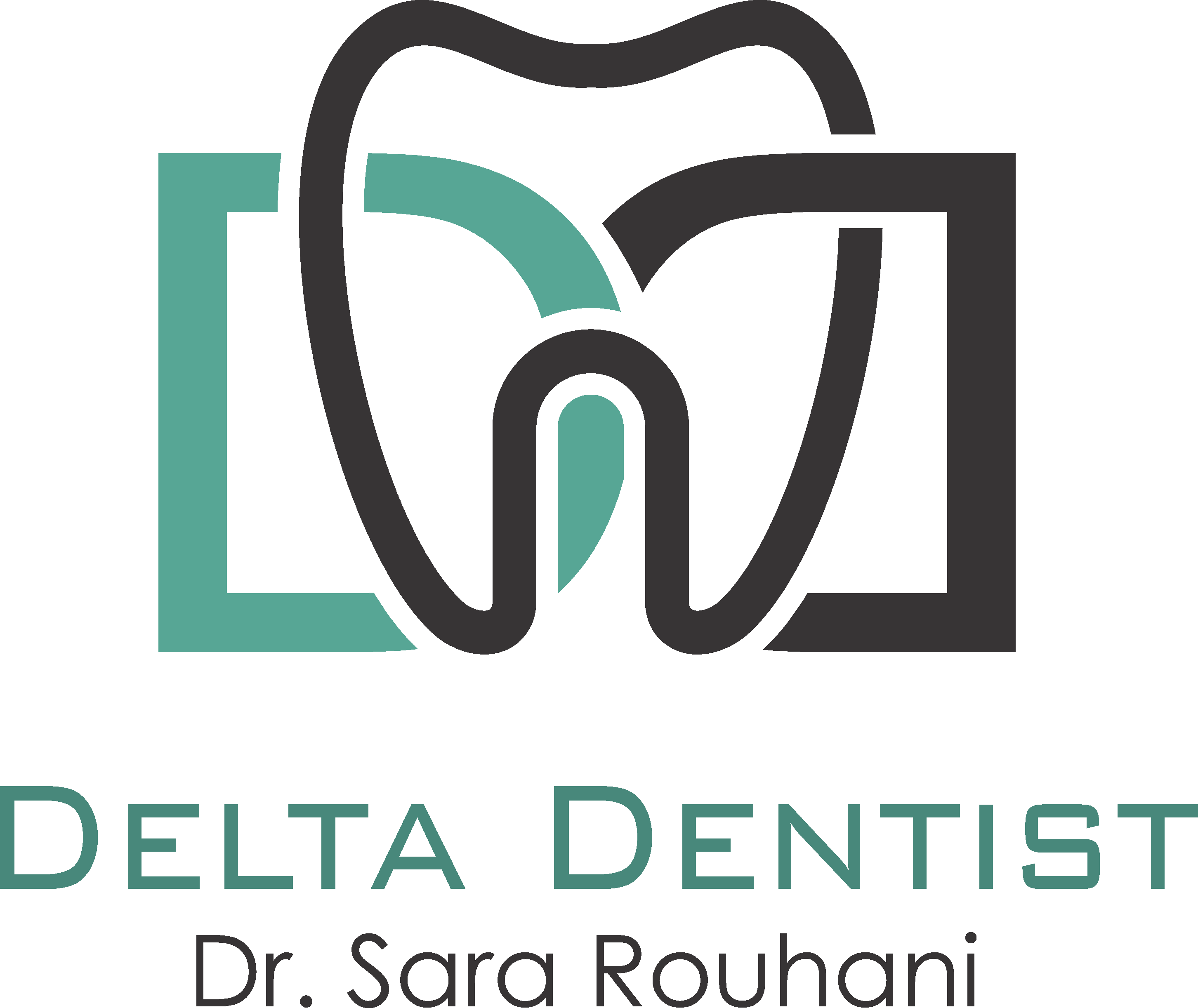Working Time
- Mon – Tue 08:00 – 17:00
Wed Closed
Thurs 08:00 – 17:00
Fri Closed
Sat Closed
Sun Closed
Contact Info
-
-
Phone: 604-591-8848
-
reception@deltadentist.ca
-
Ask the Experts
Dental Bridges

Dental bridges serve as a remarkable solution for those grappling with missing teeth, offering both functional and aesthetic benefits. This restorative dental procedure plays a pivotal role in bridging the gaps caused by tooth loss, providing individuals with renewed confidence and a natural-looking smile. By exploring the world of dental bridges, you can discover how they can improve your oral health and quality of life.
When it comes to restoring your smile with dental bridges, choosing the right dental professional is of utmost importance. Delta Dentist stands as a trusted and experienced provider, dedicated to delivering top-notch dental care. With a team of highly skilled dentists and state-of-the-art technology, Delta Dentist ensures that each patient receives personalized treatment tailored to their unique needs.
Who Can Avail for Dental Bridges
Dental bridges offer a reliable solution for individuals who have experienced tooth loss. However, not everyone is an ideal candidate for this restorative procedure.
Dental bridges are typically recommended for individuals who meet the following criteria:
- Missing Teeth: Candidates must have one or more missing teeth that need to be replaced. Dental bridges are designed to fill the gaps caused by tooth loss, providing a functional and aesthetic solution.
- Healthy Supporting Teeth: The success of dental bridges relies on the presence of healthy teeth adjacent to the gap. These teeth, called abutment teeth, act as anchors for the bridge. They should have sufficient strength and integrity to support the dental bridge.
- Oral Health: Good oral health is crucial for the success of any dental procedure, including dental bridges. Candidates should have a healthy mouth, free from gum disease, tooth decay, or other significant dental issues. Any existing oral health concerns may need to be addressed before proceeding with the bridge placement.
Factors Considered for Eligibility
In addition to the above criteria, several factors are evaluated to determine a patient’s eligibility for dental bridges. These factors include:
- Overall Health: Dental bridges require the patient to undergo a minor surgical procedure. Therefore, individuals should be in reasonably good health and able to tolerate dental treatments without complications.
- Bone Health: The presence of adequate bone structure in the jaw is essential for the stability and long-term success of dental bridges. Sufficient bone density ensures a strong foundation for the abutment teeth and the bridge itself.
- Oral Hygiene Habits: Candidates should demonstrate good oral hygiene practices and a commitment to maintaining oral health. Regular brushing, flossing, and routine dental visits are essential to prolonging the lifespan of dental bridges.
It’s important to note that each patient is unique, and eligibility for dental bridges is assessed on an individual basis.
How Dental Bridges Work
When it comes to restoring your smile with dental bridges, understanding the step-by-step process can help alleviate any concerns or uncertainties you may have. The process typically involves several stages, from the initial examination to the final placement and adjustment of the bridge.
Examination and Treatment Planning
The first step in getting dental bridges is a thorough examination and treatment plan. This stage involves:
- Initial Consultation: During the consultation, your dentist will discuss your dental concerns, examine your oral health, and take any necessary dental X-rays or scans.
- Treatment Options: Based on the examination results, your dentist will present you with different treatment options, including dental bridges. They will explain the benefits, potential risks, and costs associated with each option.
- Customized Treatment Plan: Once you decide to proceed with dental bridges, your dentist will create a personalized treatment plan tailored to your specific needs. This plan will outline the steps involved and provide an estimated timeline for the procedure.
Tooth Preparation
The next phase involves preparing the abutment teeth to support the dental bridge. This typically includes:
- Numbing the Area: Local anesthesia is administered to ensure your comfort throughout the tooth preparation process.
- Tooth Reshaping: The abutment teeth, which are the healthy teeth adjacent to the gap, need to be reshaped to accommodate the dental bridge. This involves removing a small portion of the enamel to create space for the bridge.
- Impression Taking: An impression of the prepared teeth and the surrounding area is taken using dental putty or a digital scanner. This impression serves as a mold for creating the custom-made dental bridge.
Impression and Temporary Bridge Placement
After tooth preparation, the dental team will proceed with creating a temporary bridge and taking a final impression for the permanent bridge. This phase involves:
- Temporary Bridge Placement: A temporary bridge is created and temporarily cemented onto the prepared abutment teeth. This temporary bridge protects the exposed teeth and gums while the permanent bridge is being fabricated.
- Final Impression: Another impression is taken with greater precision to capture the exact contours and alignment needed for the permanent bridge. This impression is sent to a dental laboratory, where the permanent bridge will be fabricated.
Laboratory Fabrication of Permanent Bridge
Once the dental laboratory receives the impression, they will commence the fabrication process for the permanent bridge. This typically includes:
- Design and Construction: Skilled technicians at the dental laboratory will utilize the impression to design and construct the dental bridge. They will carefully consider factors such as the shape, size, and color of the replacement teeth to ensure a natural-looking result.
- Material Selection: The dental bridge can be made from various materials, including porcelain, ceramic, or metal alloys. Your dentist will discuss the options with you and recommend the most suitable material based on your specific needs and preferences.
- Quality Control: The dental laboratory conducts rigorous quality control checks to ensure the bridge meets the required standards of fit, comfort, and aesthetics.
Final Placement and Adjustment
The last stage of the dental bridge procedure involves the final placement and adjustment of the permanent dental bridge. This crucial step ensures that the bridge fits seamlessly into your mouth and functions properly. Here’s what you can expect during this stage:
- Removal of Temporary Bridge: The temporary bridge, which has been protecting the prepared abutment teeth, is carefully removed. This allows your dentist to proceed with the placement of the permanent bridge.
- Fitting and Adjustment: The permanent dental bridge is tried in your mouth to assess its fit, appearance, and functionality. Your dentist will evaluate the alignment, bite, and overall comfort of the bridge. If any adjustments are needed, such as minor reshaping or polishing, your dentist will make them at this stage to ensure optimal results.
- Permanent Placement: Once the dental bridge fits perfectly and meets your satisfaction, it is time for the permanent placement. Your dentist will use dental cement or adhesive to securely bond the bridge onto the prepared abutment teeth. The cement is applied in a controlled manner to avoid any excess material.
- Bite Evaluation: After the bridge is secured in place, your dentist will evaluate your bite to ensure proper alignment and balance. Adjustments may be made if necessary to optimize your bite for comfortable and efficient chewing.
- Polishing and Cleaning: The dental bridge and surrounding teeth will be polished to ensure a smooth and natural-looking finish. Your dentist will also clean any excess cement or adhesive residue from the bridge and adjacent teeth.
Once the final adjustments are made and the dental bridge is firmly in place, you can enjoy the restored function and aesthetics of your smile. Your dentist will provide you with post-treatment care instructions and schedule follow-up visits to monitor the healing process and ensure the long-term success of your dental bridge.

Benefits of Dental Bridges
Dental bridges offer a range of benefits for individuals who are missing one or more teeth. Beyond the obvious aesthetic improvement, dental bridges play a vital role in restoring oral function and overall well-being.
Restoring Dental Function and Aesthetics
- Improved Chewing: Dental bridges restore the ability to chew properly, allowing you to enjoy a wider variety of foods. With missing teeth replaced, you can bite and chew with confidence, enhancing your overall nutritional intake.
- Speech Enhancement: Missing teeth can affect your speech, causing pronunciation difficulties. Dental bridges fill the gaps, restoring proper tongue placement and improving speech clarity.
- Natural Appearance: Dental bridges are custom-made to match the shape, size, and color of your natural teeth. They blend seamlessly with your existing teeth, creating a natural and aesthetically pleasing smile.
Preventing Shifting of Surrounding Teeth
- Maintaining Dental Alignment: When a tooth is lost, the surrounding teeth may start to shift or tilt into the empty space, causing misalignment. Dental bridges fill the gap, preventing the neighboring teeth from shifting and maintaining proper dental alignment.
- Preserving Jawbone Health: Empty spaces in the mouth due to missing teeth can lead to bone loss in the jaw. Dental bridges provide stimulation to the underlying jawbone, helping to preserve its density and prevent further deterioration.
Enhancing Speech and Chewing Ability
- Clearer Speech: Missing teeth can result in speech difficulties or a lisp. Dental bridges fill the gaps, enabling clear and confident speech by restoring proper tongue placement and improving the articulation of sounds.
- Improved Chewing Efficiency: Dental bridges restore the biting and chewing functionality of missing teeth. By distributing the forces evenly across the bridge, they improve chewing efficiency, allowing for comfortable and effective food breakdown.
Boosting Self-Confidence and Smile
- Enhanced Self-Esteem: Dental bridges give you the confidence to smile, speak, and interact without feeling self-conscious about missing teeth. They can significantly improve your self-esteem and overall quality of life.
- Restored Facial Structure: Tooth loss can cause a sunken appearance or sagging of facial muscles. Dental bridges help maintain the natural shape of your face by providing support and preventing the collapse of facial structures.
Dental bridges offer numerous advantages for individuals seeking to restore their smiles and oral function. Consult with a dental professional to determine if dental bridges are the right solution for you, and experience the transformative benefits they can provide.
Why Choose Delta Dentist for Dental Bridges
When it comes to dental bridges, selecting the right dental professional is crucial for achieving optimal results. Delta Dentist is a trusted provider renowned for its commitment to excellence in dental care. With their experience, advanced technology, personalized approach, and positive patient experiences, Delta Dentist stands out as a top choice for dental bridge procedures.
Experience and Expertise
Delta Dentist boasts a team of highly skilled and experienced dentists who specialize in restorative dentistry, including dental bridges. Our extensive knowledge and expertise in the field ensure that you receive the highest quality of care. With years of experience, we have successfully performed numerous dental bridge procedures, making us well-equipped to handle a wide range of cases and deliver outstanding results.
State-of-the-Art Technology
At Delta Dentist, cutting-edge technology is integrated into every aspect of the dental bridge procedure. By utilizing state-of-the-art equipment and techniques, we ensure precise diagnostics, treatment planning, and execution.
Advanced imaging technologies provide detailed 3D scans and digital impressions, enabling accurate customization of your dental bridge. This commitment to technological advancements allows us to offer efficient, comfortable, and effective dental bridge solutions.
Personalized Treatment Approach
We recognize that each patient’s dental needs and desires are unique. That’s why we adopt a personalized treatment approach for dental bridges. We will take the time to understand your goals, carefully assess your oral health, and develop a tailored treatment plan specifically designed to meet your individual needs.
By considering your dental history, preferences, and long-term goals, we ensure that your dental bridge aligns with your expectations and provides the best possible outcome.
Frequently Asked Questions
The lifespan of dental bridges can vary depending on several factors, including oral hygiene practices, overall oral health, and the materials used. On average, dental bridges can last between 5 to 15 years, or even longer with proper care. Here are some factors to consider regarding the longevity of dental bridges:
- Oral Hygiene: Maintaining good oral hygiene practices, such as regular brushing, flossing, and routine dental visits, can significantly extend the lifespan of your dental bridge.
- Material Choice: The materials used in the construction of the dental bridge can impact its durability. Your dentist will recommend the most suitable materials based on your specific needs and budget.
- Oral Health: Keeping your oral health in optimal condition is essential for the longevity of dental bridges. Treating any underlying dental issues promptly and practicing good oral hygiene can help prolong the lifespan of your bridge.
Dental bridge placement is typically a well-tolerated procedure, and patients experience minimal discomfort. Your dentist will use local anesthesia to numb the area before the procedure, ensuring your comfort throughout.
After the procedure, you may experience some mild soreness or sensitivity, which can be managed with over-the-counter pain medications. If you have concerns about pain or discomfort, discussing them with your dentist beforehand can help address any apprehensions and ensure you have a comfortable experience.
While dental bridges are a popular and effective option for replacing missing teeth, there are alternative treatments available. The alternatives to dental bridges include:
- Dental Implants: Dental implants are a long-lasting solution that involves the surgical placement of artificial tooth roots into the jawbone. They provide excellent stability and function, mimicking natural teeth.
- Removable Partial Dentures: Removable partial dentures are prosthetic teeth attached to a gum-colored plastic base. They can be removed for cleaning and offer an affordable alternative for replacing missing teeth.
Your dentist will evaluate your specific dental needs, oral health, and personal preferences to determine the most suitable option for you.
Yes, dental bridges can be replaced if needed. Over time, dental bridges may wear out, become loose, or require modifications. If you experience any issues with your dental bridge, it is important to consult with your dentist.
They will evaluate the condition of the bridge and recommend the appropriate course of action, which may include repairing or replacing the bridge to ensure optimal functionality and aesthetics.
Proper care and maintenance are essential to prolonging the lifespan of your dental bridge. Here are some tips for caring for your dental bridge:
- Brushing: Brush your teeth, including the dental bridge, at least twice a day with a soft-bristle toothbrush and fluoride toothpaste.
- Flossing: Use floss or interdental brushes to clean between the dental bridge and adjacent teeth to remove plaque and food particles.
- Regular Dental Visits: Maintain regular dental check-ups and professional cleanings to monitor the condition of your dental bridge and ensure optimal oral health.
- Avoid Chewing on Hard Objects: Refrain from chewing on hard objects, such as ice or pens, as it can damage the dental bridge.
By following these care instructions and practicing good oral hygiene habits, you can help ensure the longevity and functionality of your dental bridge.
Dental bridges are typically fixed prosthetics that are cemented or bonded onto the adjacent teeth. They are not designed to be removed by the patient. However, there are removable alternatives such as partial dentures or implant-supported removable bridges available, depending on your specific needs and preferences.
Dental bridges are designed to restore the functionality of missing teeth, allowing you to eat a wide variety of foods with ease. While it may take a short adjustment period to get used to the bridge, most individuals can comfortably enjoy their favorite foods without any restrictions.
The presence of gum disease can affect the success of dental bridge placement. It is crucial to have healthy gums before proceeding with the procedure. If you have gum disease, your dentist will recommend appropriate treatment to address the condition before considering a dental bridge.
Dental bridges rely on the support of adjacent teeth to hold them in place. However, the preparation of the abutment teeth may involve removing a small amount of enamel. This minimal alteration aims to ensure a secure fit for the bridge without compromising the overall health and stability of the neighboring teeth.
Dental insurance coverage for dental bridges varies depending on the specific insurance plan. Some insurance plans may cover a portion of the cost of dental bridges, while others may not. It is advisable to check with your dental insurance provider to understand the extent of your coverage for restorative procedures such as dental bridges.
